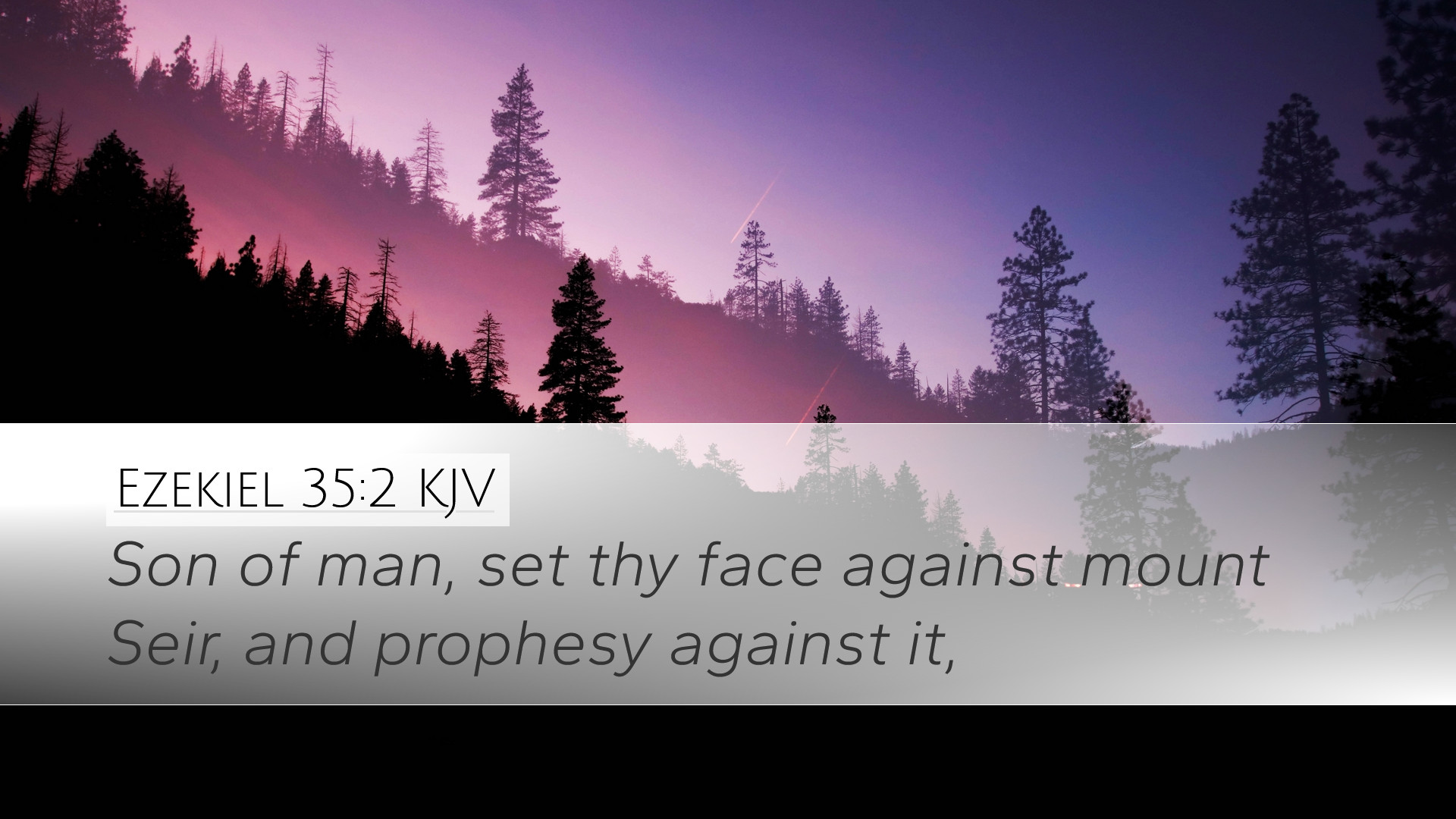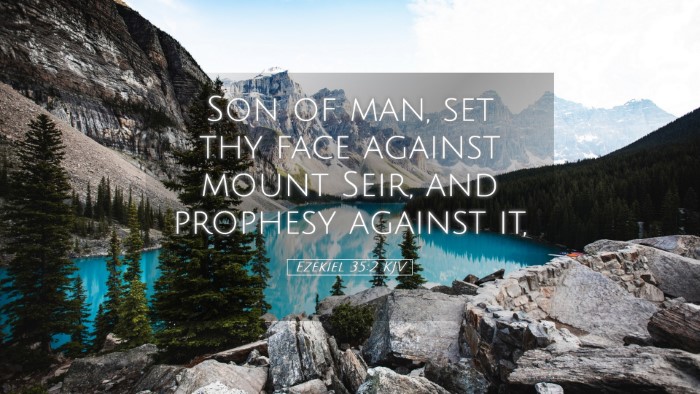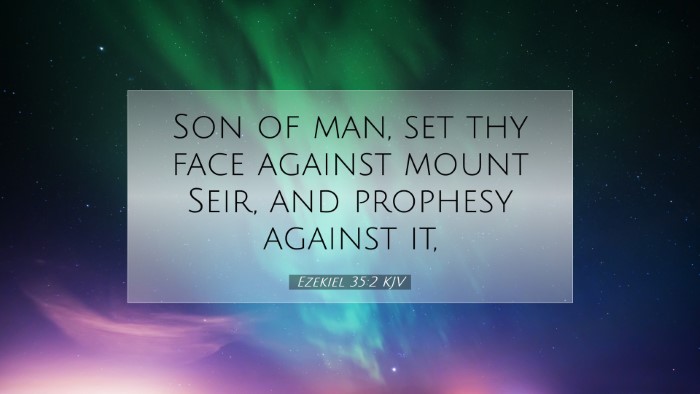Commentary on Ezekiel 35:2
Bible Verse: "Son of man, set thy face against mount Seir, and prophesy against it."
Introduction
The verse Ezekiel 35:2 is a critical moment in the prophecy of Ezekiel, reflecting God’s judgment against Mount Seir, a symbol of the Edomites and their antagonism towards Israel. This commentary draws insights from esteemed public domain commentaries by Matthew Henry, Albert Barnes, and Adam Clarke. The discourse addresses the broader implications of this verse for understanding judgment, divine retribution, and the character of God as relates to His covenant people.
Contextual Background
The Edomites, descendants of Esau, historically opposed Israel, stemming from the time of Jacob and Esau. Their persistent hostility led to divine proclamations against them. Ezekiel, in delivering God’s message, illustrates the seriousness of this enmity. Understanding the geographical and historical context is vital for grasping the significance of God's message through Ezekiel.
Henry’s Insights
Matthew Henry emphasizes the directive given to Ezekiel as a model of prophetic accountability. He notes that God's command to set his face against Mount Seir signifies not only a call to prophecy but also an expression of God’s discontent with Edom’s actions against Israel.
- Divine Judgment: Henry elaborates on how God’s judgment is not arbitrary but a direct response to Edom's transgressions, particularly their delight in Israel's misfortunes.
- Prophetic Authority: The act of setting the face against a nation symbolizes both confrontation and a declaration of God's sovereignty.
Barnes’ Observations
Albert Barnes provides thorough exegetical insights, with particular focus on the implications of the phrase "set thy face." He interprets it as indicative of steadfastness and determination in delivering God's message.
- Mount Seir as a Symbol: Barnes elucidates that Mount Seir represents not only the geographical location of Edom but also its character and wickedness.
- Judgment Against Enemies: He contextualizes this prophecy within God's historical pattern of dealing with Israel's enemies, affirming that God's justice will be served.
Clarke’s Commentary
Adam Clarke offers a comprehensive theological overview of the text, connecting it to the overarching narrative of Israel’s divine purpose and the consequences faced by its enemies.
- Significance of "Son of Man": Clarke highlights that the title implies both Ezekiel’s humanity and his representative role as a prophet, chosen to deliver a critical message.
- Theological Implication: The prophecy signifies that God is not only the protector of Israel but also the avenger of divinely sanctioned justice.
Thematic Exploration
This verse encapsulates several major biblical themes that resonate throughout the scriptures.
1. The Nature of Divine Judgment
God's judgment is depicted not only as retribution but also as a means of bringing justice and order. His engagement with nations reflects His sovereignty over the earth.
2. The Role of the Prophet
The role of the prophet as a messenger of God is central to this passage. Ezekiel's willingness to confront Mount Seir demonstrates the profound responsibilities of prophetic ministry.
3. Israel's Hope
Despite the looming judgment against Mount Seir, the overarching context of Israel's restoration serves as a reminder of hope and divine promise for God's chosen people.
Conclusion
Ezekiel 35:2 is rich in meaning, conveying profound truths about God’s justice and the need for prophetic voices in the world. Through the insights of Henry, Barnes, and Clarke, we glean an understanding of the significance of setting one's face against evil. This act embodies the theological aspirations of confronting sin while heralding the enduring hope found in God’s faithfulness.


